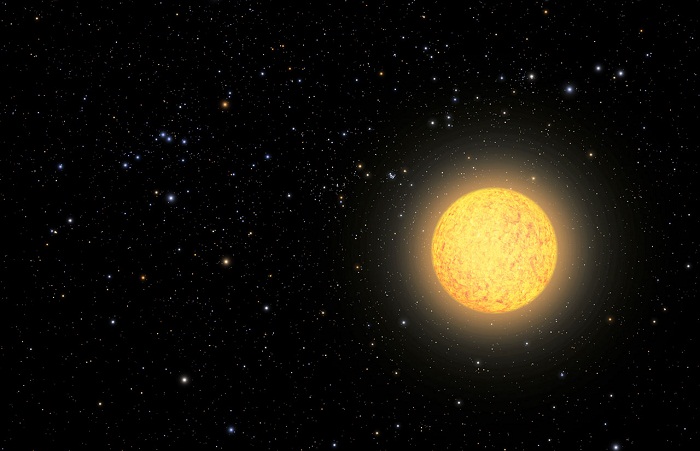The rotation of the Sun is slowing as its magnetic field interacts with a wind of particles flowing away from its surface. Other Sun-like stars show similar behaviour. This study used a method, called gyrochronology for estimating the ages of stars from their rotation rates. According to previous research, it was thought that the rotation rates of older stars continued to slow down, well into their later years. However astrophysicists at Birmingham have discovered that, at a certain age, stars stop slowing down and no longer obey the gyrochronology relations.
Dr Guy Davies, co-author on the study from the University of Birmingham’s School of Physics and Astronomy, said: ‘The astrophysics community thought that stellar rotation carried on slowing down throughout the lives of older stars, but we have discovered that this slowing ceases when stars reach their middle age.`
He continued: ‘The Sun is 4.5 billion years old and we know it is approaching this critical epoch and so we think it will stop slowing down in the next few hundreds of millions of years.’
This future change in behaviour is likely to influence the way the Sun interacts with the Earth. If the magnetic field changes then the star lifts its foot off of the brake and stops slowing down. These changes in magnetic field could lead to reduced high-energy particle emission and less frequent solar storms. This reduces the risks posed to a technologically advanced society posed by such space weather events. This could also significantly reduce the risks posed to human space travel.
More about:
















































